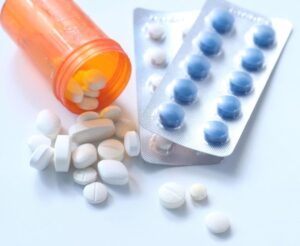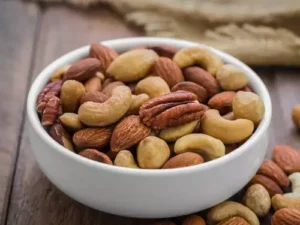Diabetes is a chronic condition that affects millions of people worldwide, impacting various organs and bodily systems. One lesser-discussed complication is diabetic bladder dysfunction, a condition characterized by a range of urinary symptoms that can significantly affect a person’s quality of life. Understanding the nuances of diabetic bladder and the importance of early detection and management is crucial. In this comprehensive guide, we explore diabetic bladder treatments, lifestyle modifications, and care strategies to manage the condition effectively.
Contents
What Medication Is Used For Diabetic Bladder Treatments?
 For managing diabetic bladder dysfunction, treatment strategies often focus on alleviating symptoms and improving bladder function. The choice of medication can depend on the specific symptoms experienced by the patient, such as urinary urgency, incontinence, or retention. Here are some commonly used drugs for diabetic bladder treatments:
For managing diabetic bladder dysfunction, treatment strategies often focus on alleviating symptoms and improving bladder function. The choice of medication can depend on the specific symptoms experienced by the patient, such as urinary urgency, incontinence, or retention. Here are some commonly used drugs for diabetic bladder treatments:
- Anticholinergics/Antimuscarinics: These medications help relax bladder muscles and treat overactive bladder symptoms. This might include urgency, frequency, and urge incontinence. Examples include oxybutynin, tolterodine, and solifenacin.
- Beta-3 Adrenergic Agonists: Mirabegron, a beta-3 adrenergic agonist, relaxes the bladder muscle. This helps increase the bladder’s storage capacity and reduce symptoms of urgency and frequency.
- Alpha-Blockers: Used primarily for men with bladder symptoms and concomitant benign prostatic hyperplasia (BPH), alpha-blockers like tamsulosin and alfuzosin can help relax the bladder neck and prostate muscle fibers, improving urine flow.
- Cholinergic Medications: For individuals with urinary retention due to underactivity of the bladder, medications that stimulate bladder contraction can be prescribed. Bethanechol is one such example, though its use is more cautious and less common due to potential side effects.
- Antibiotics: If the diabetic bladder is complicated by recurrent urinary tract infections (UTIs), antibiotics may be prescribed to treat the infections. The choice of antibiotic depends on the type of bacteria causing the infection and its sensitivity to specific drugs.
- Desmopressin: In cases where nocturia (excessive urination at night) is a significant issue, desmopressin, a synthetic version of the hormone vasopressin, can be used to reduce nighttime urine production.
It’s important to note that medication effectiveness can vary between individuals. Hence, treatment often requires a personalized approach based on the patient’s symptoms, overall health, and response to therapy.
What Foods Are Good For The Bladder?
 A healthy bladder is pivotal for maintaining a well-functioning urinary system. Certain foods and fluids can help support bladder health, potentially reducing the risk of urinary tract infections (UTIs), bladder irritation, and urinary incontinence. Here’s a list of bladder-friendly foods:
A healthy bladder is pivotal for maintaining a well-functioning urinary system. Certain foods and fluids can help support bladder health, potentially reducing the risk of urinary tract infections (UTIs), bladder irritation, and urinary incontinence. Here’s a list of bladder-friendly foods:
Water
This is fundamental for maintaining optimal bladder health. By staying well-hydrated, you ensure that your urine is diluted, which not only reduces the risk of urinary tract infections (UTIs) by flushing out bacteria but also helps prevent kidney stones. Drinking enough water encourages regular bladder emptying. This can minimize the risk of infection and irritation. Experts typically recommend drinking six to eight 8-ounce glasses of water daily, although needs can vary.
Cranberries
Cranberries and their juice have long been associated with preventing UTIs. This benefit is attributed to the presence of proanthocyanidins, which are compounds that prevent E. coli bacteria — the most common UTI culprit — from attaching to the lining of the urinary tract. Consuming cranberries or unsweetened cranberry juice regularly can be a proactive measure against UTIs.
Pears
Pears are a great choice for those with a sensitive bladder or those prone to UTIs and bladder irritation, thanks to their low acidity. They can be a refreshing, hydrating snack that’s less likely to irritate compared to more acidic fruits. Including pears in your diet can contribute to overall hydration and provide essential vitamins and fiber, supporting both digestive and bladder health.
Bananas
As a bladder-friendly fruit, bananas are known for their gentle effect on the stomach and urinary system. Their low acid content and high potassium levels make them an excellent choice for maintaining electrolyte balance without irritating the bladder. Bananas can be a soothing, nutritious snack that supports overall health.
Blueberries
Blueberries, like cranberries, contain substances that help prevent bacteria from binding to the bladder wall, potentially reducing the incidence of UTIs. They’re also rich in antioxidants. This protects the body from oxidative stress and supports a healthy immune system. Regular consumption of blueberries can be beneficial for bladder health and overall wellness.
Green beans
Non-acidic vegetables such as green beans are gentle on the bladder, making them a good option for those looking to minimize bladder irritation. Green beans are versatile, can be prepared in numerous ways, and provide a good source of vitamins, minerals, and fiber. Incorporating green beans into your diet can contribute to balanced nutrition without the risk of aggravating the bladder.
Potatoes
Potatoes are another bladder-friendly food that can be easily incorporated into a variety of meals. They are high in potassium and other nutrients, and when prepared without spicy or acidic toppings, they are unlikely to cause bladder discomfort. Whether baked, boiled, or mashed, potatoes can be a comforting and nutritious part of your diet.
Whole grains
Foods high in fiber, such as whole-grain bread, pasta, and cereals, play a crucial role in preventing constipation. Constipation can put pressure on the bladder, exacerbating symptoms of incontinence and discomfort. By maintaining regular bowel movements through a high-fiber diet, you can help relieve pressure on the bladder and improve urinary health.
Nuts
Most nuts are beneficial for bladder health due to their high content of healthy fats, proteins, and nutrients. However, it’s important to consume them in moderation because of their high calorie and fat content. Nuts can be a healthy part of your diet, contributing to overall nutritional intake without irritating the bladder.
By integrating these bladder-friendly foods and fluids into your diet, you can support your urinary system’s health while enjoying a variety of nutritious and delicious options. Remember, individual reactions to foods can vary. So it’s important to listen to your body and adjust your diet accordingly.
How Can I Stop Frequent Urination With Diabetes?
 Managing frequent urination due to diabetes involves controlling your blood sugar levels primarily, as high blood sugar can lead to increased urine production. Beyond the dietary measures already discussed, here are additional strategies to help reduce frequent urination:
Managing frequent urination due to diabetes involves controlling your blood sugar levels primarily, as high blood sugar can lead to increased urine production. Beyond the dietary measures already discussed, here are additional strategies to help reduce frequent urination:
Tight Blood Sugar Control
Keeping your blood sugar levels within a target range can minimize the need to urinate frequently. Work with your healthcare provider to develop a diabetes management plan that includes regular monitoring of your blood sugar levels. And, taking medications as prescribed, and possibly using insulin therapy effectively.
Timed Voiding and Bladder Training
Bladder training involves urinating at scheduled times and gradually increasing the time between bathroom visits. Timed voiding can help you gain more control over your bladder, reducing the frequency of urination over time.
Pelvic Floor Exercises
Strengthening the muscles of the pelvic floor with Kegel exercises can help manage urinary incontinence and urgency that sometimes accompanies frequent urination. Stronger pelvic muscles can provide better bladder control.
Limiting Fluid Intake at Night
Try to reduce your fluid intake in the hours leading up to bedtime. This can help decrease the likelihood of nocturia, which is frequent urination that interrupts sleep.
Manage Medications
Some medications can exacerbate frequent urination. If you believe a medication is affecting your bladder, discuss alternatives or adjustments with your healthcare provider. Never stop or change your medication without professional advice.
Avoid Bladder Irritants
Certain foods and beverages can irritate the bladder and increase urination frequency. While you’ve already seen what foods are good, remember also to limit caffeine, alcohol, and very spicy foods if you notice they impact your symptoms.
Stay Active
Regular physical activity can help maintain a healthy weight, which is crucial for managing diabetes. Exercise can also strengthen the muscles around the bladder, improving urinary control.
Weight Management
If you’re overweight, reducing your weight can decrease abdominal pressure on your bladder. Thereby reducing urinary frequency and urgency.
Quit Smoking
Smoking can irritate the bladder muscle, causing more frequent urination and increasing the risk of bladder cancer. Quitting smoking is beneficial for overall health and can improve bladder symptoms.
By implementing these strategies and working closely with your healthcare team, you can manage frequent urination related to diabetes more effectively. Remember, individual experiences can vary, so it may take time to find the combination of diabetic bladder treatments that works best for you.
Conclusion
In conclusion, diabetic bladder treatments involve a combination of dietary adjustments, lifestyle changes, and careful diabetes management. By focusing on maintaining stable blood sugar levels, strengthening your pelvic floor, and avoiding bladder irritants, you can significantly improve your symptoms. Remember, every person’s body reacts differently. So it might take some time to find the right balance that works for you.
Stay in close contact with your healthcare provider to tailor a plan that addresses your specific needs, and don’t be afraid to make adjustments as necessary. Do you want to get rid of diabetes? Join our online diabetes treatment program and reverse Diabetes naturally through lifestyle changes such as a Personalized Diet plan, Exercise, Yoga, dieticians, and health coaches.

